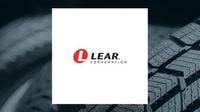On June 16, 2025, Conrad L. Mallett Jr., a director at Lear Corporation, made headlines by selling 1,187 shares of the automotive technology leader’s stock. This transaction, disclosed in a recent Securities and Exchange Commission filing, reduced Mallett’s ownership to just 84 shares, marking a significant 93.39% decrease in his stake. The sale, executed at an average price of $92.86 per share, totaled approximately $110,224, signaling a notable insider move within the company.
Lear Corporation, traded on the New York Stock Exchange under the ticker LEA, is a global powerhouse in automotive seating and electrical systems (E-Systems). The company’s extensive capabilities cover the entire automotive value chain, from advanced engineering to manufacturing and assembly, serving original equipment manufacturers across North America, Europe, Africa, Asia, and South America. Its product range includes seat systems, subsystems, key components, trim covers, foams, headrests, and surface materials like leather and fabric for a variety of vehicles including compact cars, pick-up trucks, and SUVs.
Despite the insider sale, institutional investors remain heavily invested in Lear, owning an overwhelming 97.04% of the company’s stock. Notably, Grimes & Company Inc. increased its stake by 68.3% during the first quarter of 2025, acquiring an additional 32,019 shares to hold 78,917 shares valued at nearly $7 million. Other investment firms also boosted their positions: Addison Advisors LLC increased holdings by 68.2%, Quadrant Capital Group LLC by 51.1%, Fifth Third Bancorp by an impressive 131.8%, and EverSource Wealth Advisors LLC by a striking 247.1%. Putney Financial Group LLC also initiated a new stake in the fourth quarter, reflecting broad institutional confidence in Lear’s prospects.
Financially, Lear has demonstrated resilience amidst a challenging market environment. The company reported its first-quarter 2025 earnings on May 6, revealing earnings per share (EPS) of $3.12, which surpassed analyst expectations by $0.48. Revenue for the quarter stood at $5.56 billion, slightly above the anticipated $5.47 billion, though it represented a 7.2% decline compared to the same period in the previous year. While net margin was modest at 2.17%, Lear’s return on equity was a solid 14.70%, underscoring effective management of shareholder capital.
Market analysts have responded positively to Lear’s recent performance. Wall Street Zen upgraded the stock from a “hold” to a “buy” rating in mid-May, while Bank of America raised its price target from $110 to $115, maintaining a buy rating. UBS Group also increased its price objective from $83 to $95, though it maintained a “neutral” stance. Conversely, TD Cowen downgraded Lear from “buy” to “hold” earlier in the year, setting a $95 price target. Overall, the consensus among analysts is cautious optimism, with the stock carrying an average rating of “hold” and an average price target of $107.09.
From a trading perspective, Lear’s stock price experienced a slight dip on June 17, 2025, falling $1.90 to $90.68 during midday trading on volume of 748,094 shares, slightly above its average volume of 721,785. The stock’s 50-day moving average is $87.52, while the 200-day moving average stands at $92.01. The company’s market capitalization is approximately $4.85 billion, with a price-to-earnings (P/E) ratio of 10.14 and a price/earnings-to-growth (PEG) ratio of 0.49, indicating a potentially undervalued position relative to its earnings growth. Lear’s beta of 1.29 suggests moderate volatility compared to the broader market.
Adding to its appeal for income-focused investors, Lear recently announced a quarterly dividend of $0.77 per share, payable on June 25, 2025, to shareholders of record as of June 5. This dividend translates to an annualized yield of 3.40% and reflects a payout ratio of 36.11%, which suggests a balanced approach to returning capital while retaining earnings for growth and operations.
Despite these positive financial indicators, Lear faces some headwinds. The company’s revenue decline year-over-year and mixed technical signals have led to a “sell” technical sentiment from some analysts. External risks, including trade uncertainties and supply chain challenges, continue to pose potential obstacles. Nevertheless, Lear’s strategic operational improvements and attractive dividend yield remain strong positives, contributing to an overall “Outperform” rating from Spark, TipRanks’ AI analyst platform.
Conrad Mallett’s recent insider sale, while notable, represents just 0.91% of the company’s stock owned by insiders, suggesting that broader institutional investors maintain confidence in Lear’s outlook. Market watchers will be keenly observing how these insider moves, combined with analyst ratings and financial results, influence the stock’s trajectory in the coming months.
In summary, Lear Corporation stands at a crossroads of opportunity and challenge. Its leadership in automotive seating and electrical systems, combined with solid earnings and a healthy dividend, make it an attractive proposition for investors. Yet, shifting market dynamics and insider activity add layers of complexity to its investment narrative. As the company continues to navigate the evolving automotive landscape, stakeholders will be watching closely to see how it balances growth ambitions with operational realities.




